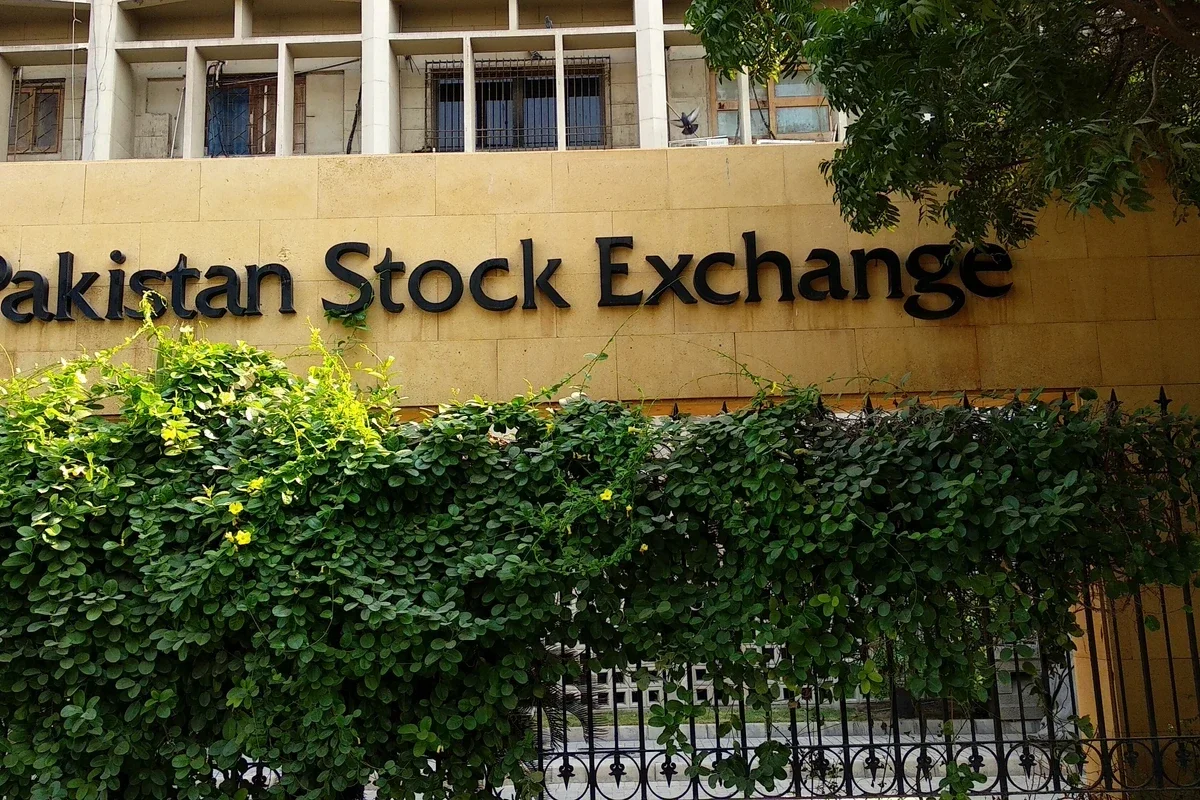IMF loan, Pakistan’s politics to weigh on equities’ direction in coming days
Analyst say peace agreement with Afghanistan will boost investors’ confidence
Business Desk
The Business Desk tracks economic trends, market movements, and business developments, offering analysis of both local and global financial news.

The KSE-100 index closed the first week of November at 159,593 points, down 2,038 points, or 1.3%
The decision by the International Monetary Fund (IMF) board to approve a $1.2 billion loan tranche for Pakistan and local politics will impact the direction of the stock market in the coming days as equities try to recover from humbling results in October.
The benchmark KSE-100 Index of the Pakistan Stock Exchange continued on a downward trajectory during most of the outgoing week before bouncing back on Friday, recovering some lost ground.
The bearish trend was driven by profit-taking and market consolidation. Consequently, the index closed the week at 159,593 points, down 2,038 points, or 1.3%.
The October inflation data also weighed heavily on the market as it clocked in at 6.2% year-on-year – the highest in 12 months – and 5.6% compared to the previous month. The number was above the market’s expectations.
However, the weekly Sensitive Price Index eased off as food and perishable items showed some stability, while a few vegetables, especially tomatoes – which surged to PKR 500 per kg – are now quoted below PKR 100.
According to an analyst at Arif Habib Ltd., the KSE-100 Index is currently trading at a PER of 8.07x, below its 15-year average of 8.59x and offers a compelling dividend yield of 6.0% versus its historical average of 6.11%.
"We foresee the momentum in the KSE-100 to continue given successful staff-level agreement of the IMF’s second review, minimal flood impact and improved credit ratings by global agencies amid falling fixed income yields", said an analyst from AKD Securities.
The investor sentiment is expected to further improve on the likelihood of foreign portfolio and direct investment flows.
Next week, the market will be looking at progress on the 27th Amendment to the Constitution, which aims to change the military’s hierarchy and alter the revenue distribution model between the federation and the provinces.
The government is expected to present the draft amendment before parliament this month, said an analyst at Spectrum Securities.
There remains uncertainty over the passage of this amendment, as even the government’s coalition parties have expressed reservations about some amendments, such as changes to the NFC award to provinces.
If the amendment is passed, it will likely signal political consensus, giving investors a sense of continuity in the incumbent government’s policies.
The second event, which investors will follow, will be progress in talks with Afghanistan. The market will react positively to a peace agreement to end border hostilities.
The KSE100 index retreated after testing its 30DMA on the upside earlier in the week and declined below its short-term moving averages.
The overall downward trend continued, with a slight bounce back on Friday. October 30 intraday low of 156,327 is the first support level. Any further fall will expose the market to the 154,000 to 152,000 points level.










Comments
See what people are discussing